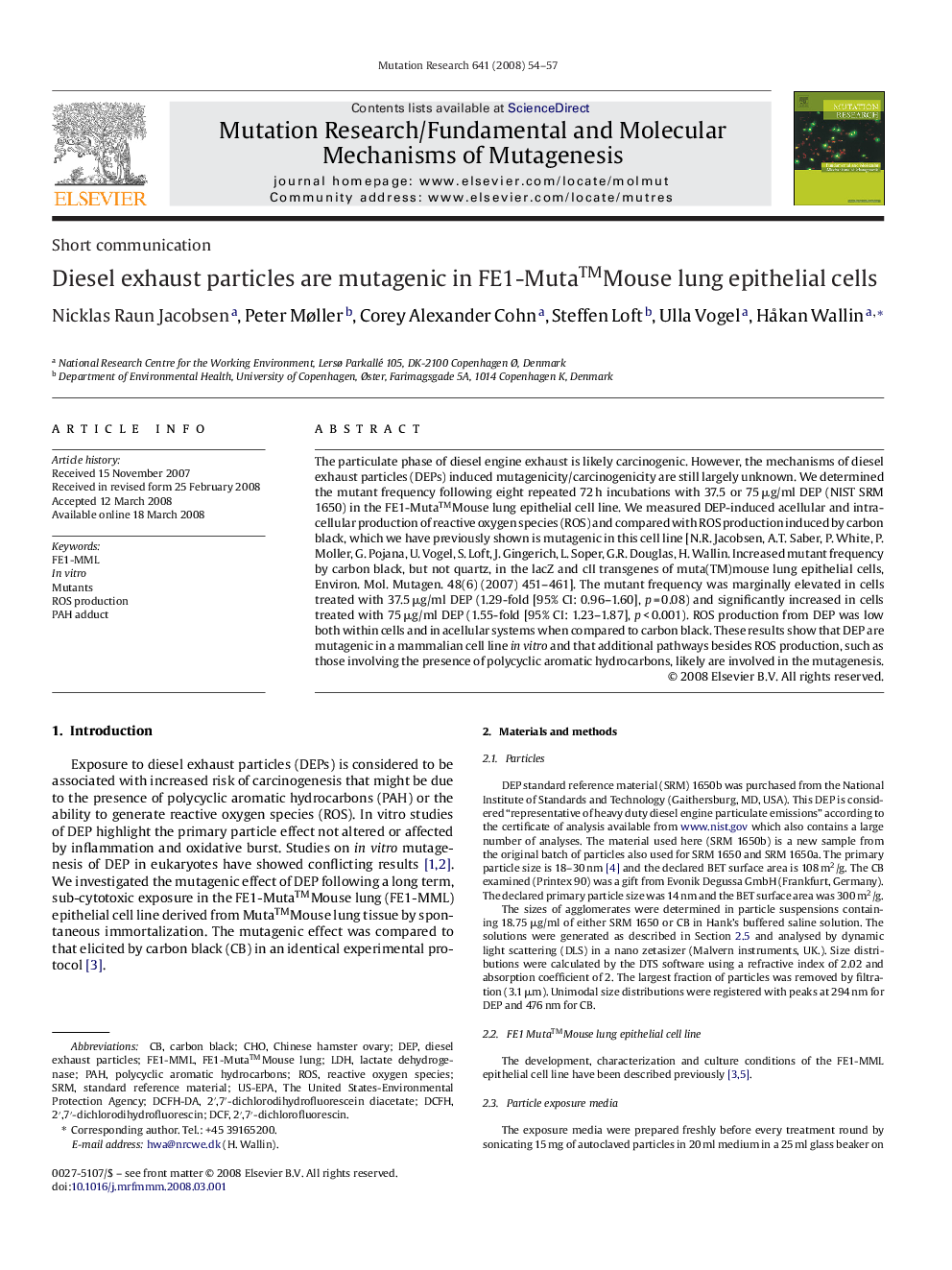| Article ID | Journal | Published Year | Pages | File Type |
|---|---|---|---|---|
| 2147183 | Mutation Research/Fundamental and Molecular Mechanisms of Mutagenesis | 2008 | 4 Pages |
The particulate phase of diesel engine exhaust is likely carcinogenic. However, the mechanisms of diesel exhaust particles (DEPs) induced mutagenicity/carcinogenicity are still largely unknown. We determined the mutant frequency following eight repeated 72 h incubations with 37.5 or 75 μg/ml DEP (NIST SRM 1650) in the FE1-Muta™Mouse lung epithelial cell line. We measured DEP-induced acellular and intracellular production of reactive oxygen species (ROS) and compared with ROS production induced by carbon black, which we have previously shown is mutagenic in this cell line [N.R. Jacobsen, A.T. Saber, P. White, P. Moller, G. Pojana, U. Vogel, S. Loft, J. Gingerich, L. Soper, G.R. Douglas, H. Wallin. Increased mutant frequency by carbon black, but not quartz, in the lacZ and cII transgenes of muta(TM)mouse lung epithelial cells, Environ. Mol. Mutagen. 48(6) (2007) 451–461]. The mutant frequency was marginally elevated in cells treated with 37.5 μg/ml DEP (1.29-fold [95% CI: 0.96–1.60], p = 0.08) and significantly increased in cells treated with 75 μg/ml DEP (1.55-fold [95% CI: 1.23–1.87], p < 0.001). ROS production from DEP was low both within cells and in acellular systems when compared to carbon black. These results show that DEP are mutagenic in a mammalian cell line in vitro and that additional pathways besides ROS production, such as those involving the presence of polycyclic aromatic hydrocarbons, likely are involved in the mutagenesis.
